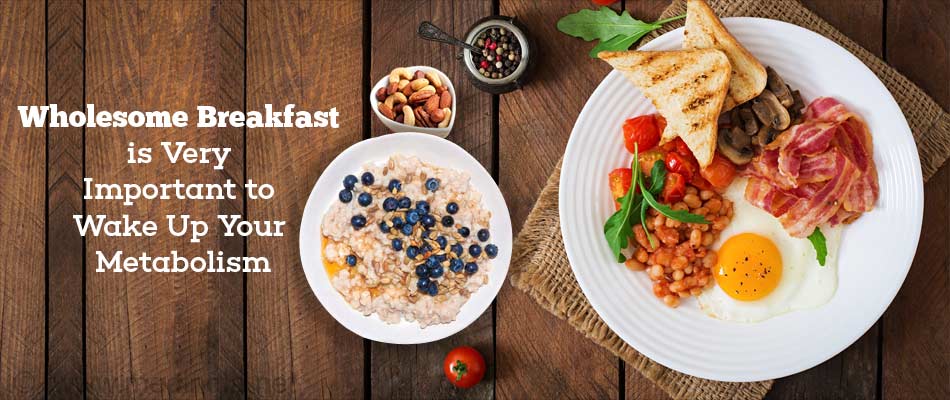- Cowley MA, Brown WA, Considine RV. Obesity. In: Jameson JL, De Groot LJ, de Kretser DM, et al, eds. Endocrinology: Adult and Pediatric. 7th ed. Philadelphia, PA: Elsevier Saunders; 2016:chap 26.
- Hodgson AB, Randell RK, Jeukendrup AE. The effect of green tea extract on fat oxidation at rest and during exercise: evidence of efficacy and proposed mechanisms. Adv Nutrl. 2013;4(2):129-140.
- Jeukendrup AE, Randell R. Fat burners: nutrition supplements that increase fat metabolism. Obes Rev. 2011;12(10):841-851.
What is Fast and Slow Metabolism?
The body is like a machine that constantly requires fuel to keep it functioning. This fuel comes in the form of food we eat. Metabolism keeps us moving, breathing, ticking and is fueled by the energy that we derive from our food.
All of us have friends who eat a lot, and yet never seem to gain any weight and others who hardly eat, but put on weight easily! Research shows that this is due to different metabolic rates, and how our bodies burn calories. Some of us have a higher metabolic rate or fast metabolism - which means that we don’t put on weight as easily, despite frequent eating binges, while there are others who have a slower metabolism, putting on weight more easily, even if they eat less and consume fewer calories.
The basal metabolic rate (or BMR) accounts for 40% to 70% of the calories that we burn every day.
Weight Loss: A Combination of Various Factors
High metabolic rate is not restricted to a lucky few, everyone can raise their metabolism and enjoy its benefits. A healthy metabolic rate also helps in detoxification, cleansing of the liver, and building immunity.
Although metabolism usually occurs at a preset speed influenced by gender and genetics; certain modifications in our lifestyle and eating habits can alter the metabolic rate.
Sure-fire Ways to Speed Up Metabolism
1. Start your Day with a Wholesome Breakfast
A daily breakfast kick-starts the engine and keeps it going. A wholesome breakfast literally wakes up your metabolism. Your body has been food deprived after a long night’s sleep, hence having a good breakfast is important. If you skip breakfast, your body goes into starvation mode and slows down your metabolism to conserve energy.

For breakfast include foods that are slow to digest which induce a sensation of satiety and can keep you feeling fuller for longer. Include a mix of proteins and complex carbohydrates. These can include oatmeal, omelet with whole grain toast, a handful of nuts, and fresh fruits.
2. Move Around More
Get up and move around more frequently rather than sitting all day on the couch or at work. Any physical movement can greatly help boost your metabolism. You can also take ‘walk breaks’ or climb a flight of stairs to stimulate and stretch your muscles. All of these activities will help burn calories and boost your metabolism throughout the day. Various breathing techniques and Yoga are also very helpful in maintaining your heart rate and boosting your metabolism.
3. Build Some Muscle
Muscles burn more calories than body fat even when resting. A pound of muscle tissue burns 5 calories, while a pound of fat only burns 2 calories. In other words, the more muscle you have the higher your metabolism. Exercise and strength training - which helps build muscle - therefore boosts overall metabolism, as well as corrects hormonal imbalance stimulating both recovery and fat burn. Strength training for approximately 30 minutes twice a week can reset your body’s thermostat to keep running even on the days you skip the gym. Strength training includes lifting weights and high intensity bouts of aerobic exercises.

4. Aerobic Activity
Aerobic exercise is the most effective way to burn calories. Aim for 150 minutes per week of aerobic exercise such as walking, cycling, or swimming. This can be done by breaking it up into 30 minutes a day for five days a week. Aerobic exercises should always be accompanied by strength or core training. A routine workout helps to regulate metabolism and keeps a tab on weight gain.
5. Don’t Slash your Carbs or Calories
With various types of fad diets endorsing low carbohydrates, remember that cutting down these may lower your weight, but in turn slow down your metabolism. Over a period of time, the body adapts to lesser energy and produces lesser hormones, thereby resulting in the body burning fewer calories. This is a survival instinct of the body to conserve energy. So when you start eating your usual quantity of food, the suppressed metabolism leads to a rebound in weight gain which is a greater concern.
6. Drink Lots of Water
Long-term dehydration is known to suppress the metabolic rate. Drink a minimum of 3 to 4 liters of water daily. This helps in detoxification of the body and clears the skin.
7. Have Small and Frequent Meals
Divide your daily calorie requirements into three meals and two mini snacks. Eating frequently boosts your metabolism and helps you stay lean rather than eating at irregular meal times. Nibbling on small meals helps to keep the metabolism running and maintains a regular blood sugar level. It helps prevent any insulin spikes. Thus, one can avoid the unnecessary weight gain.
8. Switch to Green Tea
Green tea has been known for its high antioxidant properties due to the presence of polyphenols. However, another active ingredient of green tea - catechin has also been shown to favorably impact and speed up metabolism.

9. Cut Down on Trans Fats
Trans fats are known to be bad for our health as they change the body’s ability to burn fats and slow down your metabolism. Heavy intake of trans fat can also cause insulin resistance and inflammation along with weight gain. Trans fats are most commonly found in processed, packaged and preserved foods such as cakes, biscuits, canned foods, preserved meats, etc.
10. Sleep on Time and Sleep Well
Not getting enough sleep and a good night's rest can lead to secretion of hormones such as leptin and ghrelin, which regulate the body's energy and metabolism mechanisms. Sleeping for less than 8 hours daily is known to increase body mass index and lower metabolism. A good night’s sleep helps your body repair and rest itself.










